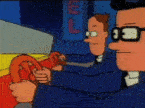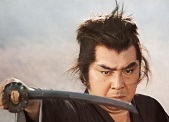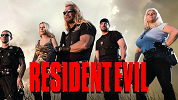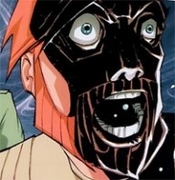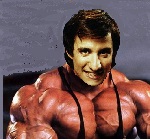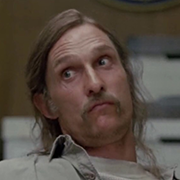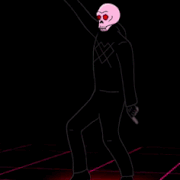|
Eau de MacGowan posted:masters of the air: the show where we talk about the holocaust on the ground Hard to have a conversation about it when you are flying a fortress.
|
|
|
|

|
| # ? May 2, 2024 02:22 |
|
Stegosnaurlax posted:Hard to have a conversation about it when you are flying a fortress. Yeah, because the captain keeps yelling to keep the intercom free from chatter E: Considering the topic of this thread, people might be into these books: John Cormer: COMBAT CREW -- Corner's own war autobiography, written based on the extensive diaries he kept during the war. He was the flight engineer (and therefore top turret gunner) on a B-17 crew and completed his tour of duty over Europe. He did not fly in the 100th, but his bomb group took part in most of the same missions, so he experienced Schweinfurt and all the other horrible poo poo. It's a very personal account, mostly dealing with Corner's own crew and his close friends in other crews. Very highly recommended, the audio book is also really good. Frank Murphy: LUCK OF THE DRAW. Frank did fly with the 100th, and it's not surprising that he did not in fact complete his tour of duty. Instead he was shot down and spent a portion of the war in brutal conditions in a Nazi prison camp. Also good, and has a different perspective than Corner's book. The audio book is again recommended, James Holland: BIG WEEK. As we all know, "Big Week" was a special operation by Bomber Command where they basically hammered Germany around the clock. Holland has written many excellent books about both wars, and this is no exception. He draws from a variety of sources to give an in-depth look at the massive operation from all perspectives. Once again, the audio book is excellent. Max Hastings: CHASTISE. Max Hastings is possibly my favourite war historian. He is very accurate and does high quality research, but he's somehow able to write extremely engrossing narratives out of his research. In this case, the book naturally deals with Operation Chastise, ie. the Dambusters raids. It's a wild story of mad inventors and daredevil pilots. Also discusses the effects and failures of the operation, so it's pretty harrowing reading. Or in my case, listening, because I listened to the audio book, and can definitely recommend that option. Shaman Tank Spec fucked around with this message at 11:26 on Apr 17, 2024 |
|
|
|
So I watched Part One (Guadalcanal/Leckie) of The Pacific for the first time in.... 14 years!?! Jesus Christ. Anyway it's... not as disappointing as I remembered! In fact, it's pretty good! The first episode has structural issues that came about perhaps as a natural result of the decision to make the primary focus three distinct soldiers from different regiments of the 1st Marine Division: Robert Leckie, John Basilone, and Eugene Sledge. The need to introduce these three characters in the first episode feels clunky, because the bulk of the episode is about Leckie's experience in Guadalcanal, making Basilone and Sledge's portions of each episode feel somewhat vestigial. There are two exceptions where I think it works strongly: Basilone arrives crisply turned out and marching behind Chesty Puller (played by William Sadler) as they pass Leckie and his bedraggled fellow soldiers who have just been through the Battle of Tenaru, remarking in astonishment and some nervousness just how ragged the men look, men who only a couple of weeks earlier were equally as fresh and somewhat naive about what was waiting for them. The other comes when the soldiers pass time reading letters they've received to the other men, and Sidney Phillips finds himself somewhat embarrassed by the openly wistful yearning and bitter self recrimination on display in Sledge's letter to him, explaining that Sledge has had to remain in the United States due to a heart murmur. Sledge's story and Basilone's are no doubt worthy of being told, and these strong scenes only work with the prior knowledge of who they are and what their background is which makes those other scenes necessary. But as part of the episode as a whole? Particularly a FIRST episode? I don't know if it works. To beat a dead horse, part of what made Band of Brothers work so well (and Masters of the Air stumble so badly out of the gate) was the time dedicated to showing the men training and growing as a unit before they found themselves thrust into Europe. My fuzzy memory of this series is that we do get to see training, but not till later, and it comes at the expense both of the flow of the show as well as shortchanging us on getting to know Leckie and Basilone in particular before we see them at war. But these problems aside, there is a strong theme running throughout the episode that otherwise pays off incredibly strongly: the somewhat naive and even romantic vision of a just war against an inhuman enemy clashing headfirst into the reality of the horrors of war. Those early scenes showcase it all too well, wisely choosing not to bother to explain Pearl Harbor but jumping into the episode in December of 1941 with young men eagerly signing up in a patriotic fervor. While there are the odd signs here and there of people understanding it isn't going to be like something out of a storybook or a movie (particularly among parents), there is a sense of the righteousness of the cause and the notion that through sheer power of the "rightness" of the American people, victory will be swift and assured. Basilone's younger brother raises a toast to his brother at Christmas, assuring everybody that surely they'll all be back together here next Christmas to celebrate the end of the war (a common refrain throughout history, it'll all be over by Christmas). Leckie in particular seems caught up in the romance, passing his neighbor Vera as he leaves Church and telling her confidently how he has joined up with the Marines and assuring her that he'll write to her. "Oh, okay!" says Vera, polite and pleasant but seemingly a little confused as to why he would. Presumably she either doesn't realize or chooses not to engage with what appears to be a long held crush and fantasy on his part that he has slotted her into: she will be "his girl", he'll write her letters and she's cherish and thrill to them, holding the paper close to her chest and sighing with her love for him (to be fair, they end up marrying! There's a line early in Band of Brothers where the surviving veterans discuss the difference in mindset between their era and those that came (and much as I admire these men, I prefer the latter to be honest) where some of those who were found 4F and denied the chance to join up and go to war committed suicide because the shame and self-loathing was too much for them to bear. Sledge, by all appearances, has a doting mother who fears for his safety, and there is a suggestion at this point (I honestly do not recall how it goes) that she is putting pressure on her husband to keep finding that murmur whether it is there or not. Even onboard the ship, sailing into the Pacific to go to war with an enemy they've been convinced are inhuman monsters, morale seems high and this all seems like somewhat of a game. Everybody laughs and jokes, talks down the "Japs" at every opportunity (one soldier in particular is VERY virulent, giving even the other soldiers pause, as he seems to be living out a movie fantasy of his own with him as the main character), with one assuring Leckie that it will be a "turkey shoot" and they'll simply mow down the Japanese soldiers and be done with things. Everybody is convinced that Pearl Harbor was a cowardly attack, that the Japanese will fall apart when faced with the resolute might of the glorious Americans who have come to teach them a lesson. The great strength of this episode is to continually deny both this gratification and even the appearance of the Japanese at all. Anti-climax after anti-climax follows, as the men land on the shore in a tense scene reminiscent of Saving Private Ryan only to discover a beach deserted of all but the other Americans who already arrived and are just kind of milling about bored. They march deep into the jungle, on alert and ready to go to war at any moment, freezing at the sound of breaking sticks, prepared to open fire... but never finding any Japanese. There are signs. Deserted trenches, abandoned camps, plates left with the food still half eaten. The Japanese have been there, and recently... but now they're nowhere. But they haven't gone, they find some lone American soldiers who encountered Japanese troops and were slaughtered, their bodies mutilated and strung up, disgusting the men who see it as further proof of the Japanese's barbarity. When they hole up to camp at night, they see movement and hear sound and open fire, ready to unleash all that tension only to be stopped by their commanders, finding out the next that that a medic got up to take a piss and forgot to give the callsign, and got riddled with bullets and died because everybody is on knife-edge. Any action taking place is away from them, they see from a distance the aftermath of a battle to take the airfield, feeling like they've been on a wild goose chase while others get the glory. Still, it comes as some relief then when late one night across the 8th and 9th of August they see a naval battle taking place and are thrilled as they imagine Admiral Turner easily routing his foes with powerful American naval superiority. So to discover the next day that the Americans faced what is considered by some one of the worst defeats in US Naval History is a sobering moment. Suddenly they're not the powerful Americans chasing down the cowardly Japanese on the island of Guadalcanal while supported by the mighty US Navy. Suddenly they're the cut off and alone American troops far from home on an island full of a deadly enemy whose own Navy just chased off theirs. They're short on supplies and ammunition, and now THEY are the hunted, hunkering down at night as Japanese boats pass by throwing spotlights out across the shore trying to find their position. The Japanese are very deliberately portrayed as a completely alien force. They're unseen, only found in the aftermath of action of signs of their prior presence. They mutilated American troops. They exist in the darkness, hidden in the jungle, unseen, inhuman, more monster than man. When the battle finally comes, Leckie and his fellow soldiers are at Alligator Creek, and even here when battle finally comes the Japanese remain a monstrous, inhuman force. They're shadows moving through the dark, opening fire, yelling a language they don't speak... and they come and they keep coming. Pouring forward in large enough numbers to start flanking, not stopping even as the Americans unload endless rounds at them, the heavy machine gun switching position multiple times to try and stave off the flanking maneuvers... and they keep coming, seemingly unfazed by death, not so much men as things, inscrutable things. https://www.youtube.com/watch?v=geiiXQsK56Y Finally though there is an end to them, and when day breaks the Americans are shocked to see hundreds of bodies lying dead on the beach, unable to understand what they've seen. When they try to recover the body of a wounded but still living soldier, that sense of the alien is redoubled when he is revealed to be holding a grenade, screaming,"BANZAI!" as he uses it to commit suicide and take two US troops with him. When several surviving Japanese soldiers suddenly rush out of the treeline opening fire as well, the Americans quickly blast them to death, but one manages to avoid being shot, dropping his rifle and making a dart back for the trees before rethinking and trying for his rifle, only to find himself zeroed in by the American troops who shoot to either side of him, preventing him from being able to go one way or another. Screaming his defiance, the soldier storms forward into the creek, bellowing words at them they can't understand. It's here, I feel, that the episode showcases at last for Leckie at least the true reality behind the propaganda. Seen at last in the full light of day, by himself, it's clear this guy isn't a monster. He isn't an alien. He isn't some unthinking automaton. He's a human being. So are all the Japanese soldiers who died the night previous. Their commander had simply misunderstood the troop numbers he was facing, not realizing over 11,000 troops had been landed and were currently all over Guadalcanal. The human wave of soldiers that rushed in at night then was the result of a belief that superior numbers would see them easily flank and crush the Americans - whose navy had been beaten and left them surely undersupplied - and lead to a resounding victory. Instead, they have been destroyed, and this last soldier facing death refuses to be treated like a toy for the amusement of the Americans who are taking out their own aggression, fears and doubts on the safe target of a soldier from a race of people that America has painted as untrustworthy, inhuman, savage cowards. The Japanese soldier takes several shots from the laughing US troops, giving us a sense of what the American troops might seem like to the Japanese who have been fed their own propaganda. Each is designed to pain him, to humiliate him, but not to kill him, at least not yet. Leckie, whether out of pity, disgust or horror, raises his own firearm and shoots the man in the chest, killing him. Another scene shows him burning a photograph he found in a Japanese soldier's book of the man with a woman, perhaps his wife or maybe even his mother. This is somebody's kid, somebody's husband, somebody's brother. This is a human being. Keeping that photograph is a reminder of that truth, and burning it is perhaps Leckie's way of trying to keep from thinking about that every time he fires that heavy machine gun into the soldiers racing forward intending to kill him. https://www.youtube.com/watch?v=7-XtkvzqUdc The other soldiers gripe jokingly, asking why he did that... they wanted their fun! They wanted to "play" with another human being, to continue to dehumanize him in order to relieve their own trauma. From Pearl Harbor. From the terror of combat. From facing up to mortality on what was supposed to be a righteous crusade. The level of horrific brutality that would be on display during the Pacific Theater was only starting, and for both good and bad it should be clear right from this first episode that this was going to be an entirely different kind of series than Band of Brothers. Jerusalem fucked around with this message at 04:07 on Apr 18, 2024 |
|
|
HerpicleOmnicron5 posted:plus intellectual knowledge is nothing compared to actually witnessing it - even if you just know conceptually, you wonít care half as much as if youíre there, and less still if you havenít been affected at all. out of sight, out of mind and in many ways, out of true comprehension. People go their entire lives knowing about most every detail of the Holocaust and the camps, and the experience of being at a camp the first time still takes their breath away, and that's after they've been shut down for decades.
|
|
|
|
|
I remember when The Pacific aired, there was a tie-in book with the same name that was meant to be a kind of supplement to the show. Itís an oral history of the USMC in the Pacific, broken into four parts. 1) veterans talking about what their lives were like before Pearl Harbor 2) induction and training 3) the war 4) their lives after the war It was in the fourth section that I read something thatís stuck with me ever since, and it has everything to do with the nature of the war in the pacific, which very early on became a war of annihilation. No quarter given or expected by either side, etc. In this guyís account of his postwar life, he talks about getting discharged and starting work at a post office in Philadelphia, where he stayed for thirty years before retiring. At this same post office were two other Marine combat vets. These three guys werenít in the same units, but theyíd all had similar experiences with the savagery that characterized that part of the war. These three guys became friends, and theyíd all get together along with their wives and hang out. Close friends for decades. But according to this dude, the three men never really discussed the war at all, amongst themselves. He did say that every once in a while, something funny would happen that reminded one of them of something else funny that had happened during the war. Then they might exchange funny, lighthearted war stories for a bit. But as far as discussing combat? And loss of friends, and the overall hellish experience? Not once. Not once did these guys, who shared this unique experience, ever discuss that stuff. Not in thirty years working side by side, and seeing each other socially outside of work. I think that says a lot about the nature of the war in the pacific, and Iíve never forgotten it.
|
|
|
|
Yeah itís pretty well known that anyone who experienced real combat doesnít like to talk about it. Itís traumatic My grandfather was happy to share stories about the time he ran into his old friend on an island in the middle of nowhere, or how they got to have ice cream the night before a giant battle, but never talked about how two of the ships he was on were sunk and how he spent several days in the water after one Also lied about his age and joined when he was 16
|
|
|
|
Jerusalem posted:The level of horrific brutality that would be on display during the Pacific Theater was only starting, and for both good and bad it should be clear right from this first episode that this was going to be an entirely different kind of series than Band of Brothers. drat, J-Ru. Great write-up. It inspired me to rewatch The Pacific for the first time in years, and you are definitely on the money about how the first episode is shot and styled completely differently from BoB. I remember quite liking the show when I first watched it, even though there was one episode I didn't like (]spoiler]it's not the Australia episode, it's the one where that one guy tools around some hospital for most of the episode[/spoiler]), and this was better than I remembered.
|
|
|
|
I like the Leckie character but always thought the show might be tighter just focused on Basilone and Sledge.
|
|
|
|
Leckie is there to fill the gaps if you want to tell a mostly linear narrative from Guadalcanal to Okinawa. Basilone went home after Guadalcanal and then died at Iwo Jima and Sledge didn't fight until Peleliu, so Leckie's story fills in the Solomon Islands campaign and Tarawa gets a mention as well. It doesn't really help that his two latter episodes where he's the lead are the weakest of the show, unfortunately. The first 2 Guadalcanal eps are really good but Australia and New Guinea are all over the place. Then Peleliu starts and the show shifts from good to amazing.
|
|
|
|
Yeah, the Sledge arc and the three-episode Peleliu story is really the heart of the show, for me.
|
|
|
|
I liked Pacific very much, more than Band of Brothers even. I mean BoB is excellent, and I totally get why it resonates with so many people, but personally I think it can sometimes be a bit too melodramatic for my taste. I mean Pacific plays with emotions too, but it stems more from absolute brutality of circumstances on Pacific theater. My favourite episode in Pacific was the one with Leckie where they are holding positions in jungle with constant rain. There's no battles, just absolute misery in jungle exacerbated with that rear end in a top hat officer loving with Leckie. Dunno why I liked it, I just felt that episode.
|
|
|
|
EvilBlackRailgun posted:Yeah itís pretty well known that anyone who experienced real combat doesnít like to talk about it. Itís traumatic My grandfather was a gunner on a B-25 in the pacific and the only story he ever told me about the war was how one night they were driving a jeep down the jungle road in New Guinea that was normally clear but they were blacked out and they ran over a big log that almost knocked a few guys out of the jeep. They next day driving back they discovered it had actually been a python.
|
|
|
|
One thing that always stood out to me from The Pacific that I'm anticipating getting back up to is when the war is over and the troops who immediately signed up after Pearl (or before!) and went to war with America's direct enemy and went through so much hell get home and... the war is kinda yesterday's news. They already had their big celebrations for VE Day, and though VJ day was a huge deal too by the time the troops got back from the Pacific everybody had kinda moved on. There's a scene in my memory of a bartender (or maybe just a guy at a bar) noting that he was a veteran of Normandy, Market Garden etc and he'd been through a lot and been celebrated for it, but he and the others knew that the troops in the Pacific had been through a meat grinder and it wasn't fair that everybody largely seemed over it all by the time they got back to the homes they defended. This isn't to say there wasn't a huge amount of respect for Pacific veterans, there obviously was and remains, but I can't imagine going through all that hell and finally getting back and they already had the party without you and now want you to just kinda get on with life like everything is normal again. Jerusalem fucked around with this message at 04:33 on Apr 18, 2024 |
|
|
|
When I was in college, one of the students in one of my history classes asked a veteran from his church to come to class and talk about his experiences in the war. He was a bubble turret gunner in the European theater. He was super soft spoken, tiny guy, and he started off talking about training and some lighter stories about him and his friends. About halfway through he opened up and told us he'd been at the bombing of Dresden. At the time I didn't really know what that meant but I could tell he was having trouble talking about it. He also mentioned that one of the other gunners had been hit by flak and was so pulverized that they had to wash his remains out of the turret with a hose. I saw some hosed up poo poo during my stint in the army but nothing that disturbing.
|
|
|
|
I've been watching more of The Pacific and Leckie's kind of a pretentious little tit, isn't he?
|
|
|
|
Shaman Tank Spec posted:I've been watching more of The Pacific and Leckie's kind of a pretentious little tit, isn't he? He's a writer.
|
|
|
|
Arc Hammer posted:He's a writer. I remember vaguely hearing that either his book, or Sledge's With the Old Breed was pretty poo poo, but can't remember which it was. On instinct alone I'd put my money on Mr. "It's a sonnet for the fallen".
|
|
|
|
Weird that he wrote himself that way
|
|
|
|
Shaman Tank Spec posted:I remember vaguely hearing that either his book, or Sledge's With the Old Breed was pretty poo poo, but can't remember which it was. On instinct alone I'd put my money on Mr. "It's a sonnet for the fallen". I read Sledge's when the pacific was airing, and IIRC it was pretty well done.
|
|
|
|
Leckie's writing was in Helmet for my Pillow.
|
|
|
|
Arc Hammer posted:Leckie's writing was in Helmet for my Pillow. And apparently The Pacific is heavily based on it.
|
|
|
|
Re: The Pacific It's wild that this guy  was in Fury Road. 
|
|
|
|
Australians.
|
|
|
|
I was thinking about the Pacific and thought it was odd that the stories we see are from machine gunners and mortar crews. They are front line infantry, they're the support and defensive weapons. The action so to speak, comes to them. I think Leckie is a rifleman on Peleliu, but he's wounded before he's in the thick of fighting. I think that contributes to the feeling Pacific isn't as active as Band of Brothers. Its been a while since i've watched it but the only episode thats a full battle is Okinawa I think. I really should rewatch it, as I'm probably forgetting a lot. But there's certainly a lot of sitting around and not doing anything, two of Leckie's episodes are him not even in combat, one in the hospital and the Australia episode. This is almost the WW2 Amblin thread now isn't it?
|
|
|
|
Jokes on you, Spielberg has a legion of alt accounts
|
|
|
|
Part Two of The Pacific, Basilone, is where one of the problems of the chosen 3 character perspective really come into sharp relief. It's a good episode, with strong character moments, and it makes for a very compelling view, but it also seems uncertain in the story it is telling. It doesn't know who to give prominent focus to, and the payoff for the soldiers of learning how their miserable experience has made them heroes feels like it comes too early in the series to really have the impact it should. Similarly, the resolution of Sledge's inability to serve his country feels extraordinarily anti-climactic. Partly this is due to timeline constraints, but this is also a self-inflicted problem for the show, which made a significant jump of 8 months from Christmas of 1941 to August and September of 1942 in part 1 and now finds itself scrambling to fit a lot in for Leckie, Basilone and Sledge in quick succession. To beat on a tattered and broken drum: show the training! Spend more time with Sledge stewing in his own juices while that is happening. Demonstrate the strength of the bond between Basilone, Manny and J.P! After the previous episode's primary focus was on Robert Leckie, this episode wants to make John Basilone the central character for this episode, which makes sense... but runs into the problem of redundancy. Basilone's story in episode 2 is effectively Leckie's story from episode 1, at least in the broad strokes. A solider arrives fit, healthy and raring to go on Guadalcanal, discovers the dirty reality of war as a bewildering mixture of boredom and uncertainty peppered with insanely intense action. They finally make contact with the Japanese army, death is meted out in horrifying numbers, and then in the aftermath they struggle to reconcile life's relative normalcy after the brutal inhumanity of what they've just been through. The key difference is that Basilone's actions in The Battle of Henderson Field are near legendary, an even more astonishing (and horrifying) repeat of Leckie mowing down the human wave of Japanese soldiers at the Battle of Tenaru, and of course Basilone's brush with mortality is magnified by the unseen, non-heroic, seemingly completely random death of his friend Manny Rodriguez. As an aside, The Pacific was the first time I became aware of Jon Bernthal as an actor. I was hugely impressed, and for years after one of my best memories of The Pacific was his performance as John Basilone and the multiple episodes he appeared in that series. He did NOT play John Basilone Bernthal played Basilone's (Jon Seda's) best friend and died in the second episode, getting something like 10-15 minutes total screentime if that. How I made that mix-up I don't know, it's not like I knew to look out for him from other things, he wouldn't appear in The Walking Dead till later that year. Thus I was VERY confused by these two episodes! I straight up remember in my head images from the episode of Basilone training soldiers later, and it's Bernthal in my head! Anyway nevermind that. Because Basilone is doing a lot of what Leckie did, it's a good decision to break up that by showcasing what Leckie was up to at the same time. In isolation, Basilone's story is good and Leckie's story is good, but given we already got so much Leckie in the first episode it seems like Basilone is getting the short end of the stick even if this is HIS episode. The opening 10 minutes or so of the episode do what they can to tie the two together and show their parallels, culminating in a very fun scene where Basilone and Leckie unknowingly cross-paths as they and their fellow Marines raid an Army supply drop when the newcomer army soldiers predictably scatter during a flyover by Japanese pilots, not knowing what the Marines have learned that the Japanese bomb airfields, not beaches. https://www.youtube.com/watch?v=GmY0TJlq0Ns It's a very "boys will be boys" scene, Leckie is warned to be more circumspect when he insists later that he didn't steal an Army Captain's moccasins... while wearing the moccasins, though of course the officer chiding him has his own looted crate of liquor as he's telling him off. The issue though is that while it's also a clearly needed morale-boost for the soldiers who have all seen some horrible poo poo since landing on Guadalcanal, the show is catching up on showing how Basilone got to this state while avoiding showing any extra trauma Leckie has been though so as not to undercut it. So all we see up to this point is Leckie and his fellow soldiers sitting around in their trench cracking jokes about their WWI-era rations and Leckie clearly thinking very highly of his own writing/intellect. Meanwhile, Basilone sees his Lieutenant killed by a sniper directly in front of him when the officer raises his head slightly too high, his head the only thing between the bullet and Basilone himself, which leaves Basilone effectively having to lead the men for the rest of the patrol as Chesty Puller tries to lure the Japanese soldiers into a fight. Not longer after that, we see tensions running high as his friend J.P almost gets into a fight with another soldier over a simple argument about listening to the radio, we see the men's meals are nothing but white rice with the odd maggot for "protein", and they've become so numb to death that a Japanese soldier's rotting head has been openly displayed on a spike with a bad joke about anti-malarial medication. This kind of gross violation of human decency doesn't strike any of them as unusual (it was Leckie's group in the 1st episode, but remember the sheer disgust at when they saw the American troops similarly mutilated and put on display), and when Chesty shows up and reads them a propaganda piece from a Japanese newspaper about how all US Marines are actually lunatics released from insane asylums, they whoop and cheer in appreciation at being feared by the enemy (and enjoying the joke of pretending this is a compliment) without any of them really seeming to put 2-and-2 together that maybe all the stories they've heard about the Japanese soldiers aren't entirely accurate either. Indeed, Leckie seems played for comedy mostly in this first section of the episode. He returns triumphant from his looting run with cans of peaches for everybody, having traded the stolen crackers for them. He eagerly gulps down the juice from one can so deeply that it makes him sick, puking his guts out and unable to help but laugh when Runner - making GBS threads uncontrollably over a log - declares his new name is "Peaches" and suggests he write one of his love letters to Vera telling her all about this romantic, heroic scene. The comedy doesn't last of course, later that evening as they're still somewhat enjoying the afterglow of having full bellies (well, not poor Runner), the Japanese start bombing, seemingly zeroing right in on their location. The soldiers hunker down in the trenches as the ground shakes, men cursing and screaming defiance at the Japanese. How Company (Leckie) and Dog Company (Basilone) are seemingly both based at the same camp, as we see both Leckie and Basilone involved in efforts the next day to dig out those in still trapped or buried in trenches, some dead, some horribly injured, some lucky ones unscathed, including a dog that the men had adopted. One trench in particular took a direct hit, Manny Rodriguez commenting with a mixture of rage and shock that some "little Japanese lady" at a factory added just a bit more explosive to a bomb and the extra damage left the men inside little more than a collection of bloodied limbs, torsos and heads. Even at this point, 2 episodes into the series, I feel like I have already become somewhat inured to the horrific mutilation of corpses and appearance of multiple dead bodies. I feel like this was a deliberate intention of the show's creators, to put the viewer into the same mindset of the soldiers where what was once an unthinkable sight has become distressingly commonplace. The mutilated remains of the soldiers in the trench then stands out because this impacts even on these soldiers, who find themselves frozen in place unable to look away, not quite able to believe what they're seeing... but they're going to be seeing a lot more of it. The bombing was just the pre-cursor, Chesty Puller explains that the belief is that Japanese are going to try and retake the airfield. Dog Company is warned that in order to ensure all avenues are covered, they are going to be the single line guarding their sector, and that the possibility of the Japanese breaking through is considered real enough that they have orders for all troops to fall back into the jungle and resort to guerilla tactics. Chesty insists this will not happen and all the men are quick to agree, but all of them know that even stating the possibility shows how grim things could be. Leckie and the 1st Marines up north get their own message in that regard when their Captain gifts them a pack of Lucky Strike cigarettes after informing them they're as thinly stretched as Dog Company if the Japanese choose to attempt a break-through via their position instead, all of them staring awkwardly at the pack before noting - after the Captain has left of course - that this "act of a gentleman" can only mean one thing: they're REALLY hosed. It might seem pedantic, because of course Leckie and his troops were there and they went through a ton of poo poo of Guadalcanal, but this jumping between the two regiments and specifically companies - especially where both the 1st and 7th were present in the same place at the same time - feels distracting. It's not always clear who is where or why, and some of the dialogue intended to explain this and to separate the two feels somewhat forced at times, like Chesty going out of his way to mention the 1st Marines would be up north and Leckie and his group discussing Chesty and the 7th Marines. For much of the rest of the episode this becomes the John Basilone show, and with good cause, and the focus on Leckie's group earlier somewhat detracts from that. One of the great strengths of Band of Brothers was of course that their large ensemble cast was still largely contained within Easy Company, and if an episode had to focus on one character then it made sense for the others to be around to varying degrees of visibility. I couldn't say exactly how to make this flow a bit better than it does, I just know that watching this episode I found myself feeling like it didn't quite know what it wanted to be. The Battle for Henderson Field is... well it's hard to really put it into words. Here's what the real life Basilone had to say about it. John Basilone posted:It was rough as hell down there. That's... quite the understatement. Basilone won the Medal of Honor for his actions during this battle. They came under attack from an entire Japanese regiment of 3000 soldiers. Basilone commanded the machine guns for two days of fighting, he ran back and forth collecting and distributing hundreds of rounds of ammo. He literally repaired a jammed machine gun in the middle of the battle! He's credited with killing at least 38 of the enemy soldiers but nobody really has any idea, it was only him and two other Marines left in his section when all was said and done. He lost the mitt designed to protect his hand from the heat of the gun barrel and picked it up and carried it anyway, getting 3rd degree burns. He fought with pistol and machete when the ammo finally ran out. I said earlier that broadly speaking Basilone's story in this episode is largely the same as Leckie's in episode 1. That was a (gross over-)generalization of course, and Basilone's actions remain extraordinary even as seen in the episode. I say even, because of course the episode actually dials down the extremes of what he went through and what he did in that battle. It feels like "only" a single night, rather than 2 whole days. A short, intense and extremely violent and bloody battle in which he did some remarkable things, including racing out onto the battlefield to clear the pile of dead bodies so they could see the fresh Japanese troops coming (in reality, the bodies piled where they died and the fresh Japanese troops used them to get over the barbed wire fences). What the real life Basilone did was so insane that anybody who wrote into a script would get told to come back when they learned to write something that felt realistic instead of like a simplistic fantasy of a child who doesn't truly understand war. Sometimes truth is stranger than fiction, and even scenes where Basilone's fellow soldiers are simply staring in shock as he mows down the seemingly endless wave of enemy troops don't feel like they're too far out of the realm of possibility. War is a horrible thing, but sometimes people do extraordinary things in that horror. https://www.youtube.com/watch?v=KQzEPvSPtoA https://www.youtube.com/watch?v=z1-O2QFmy4Y It is to the credit of the episode that it, in my opinion, doesn't turn this whole sequence into a boy's fantasy John Wayne hero-splatter-fest that revels in the death and destruction taking place. The tension and fear is through the roof, the desperation and the barely held-in-check panic. The only downside I'd give it is that the 1st episode already did such a good job of showcasing the mindset for the troops of the Japanese as inhuman and alien, only for the reminder at the end that there were all too human. This episode returns back to making them largely faceless, shadowy figures whose endless human waves of soldiers racing to their death make them unfathomable to the American soldiers and further reinforces their belief in the propaganda they've been taught. This is necessary for the ongoing demonstration of the utter barbarity that was to continue, but it does make it feel like that scene of the despairing Japanese soldier caught in the crossfire last episode is in danger of being swallowed up in the otherwise wall-to-wall treatment of the Japanese as simply "the other". In the aftermath of the battle, Basilone and J.P search for Manny, who had been made into Chesty's runner to take messages between Command and the troops as well as move in extra ammo. Basilone and Manny ran into each other unexpectedly during the battle, but when Basilone can't find him afterwards even in the aid station, he goes searching and finds him dead in the jungle. There's no sign of any great fight or struggle, it appears he was simply hit by a bullet while moving through the jungle and died. Basilone, who held it together so well during the battle, finds himself struggling with the unfairness of this, the knowledge that if the bullet had been on a different angle, or if Manny had just moved to the left or the right, he'd still be with them now. There's no point to that kind of second-guessing of course, and J.P - who blew up during the radio encounter earlier in the episode - has to play the calming influence now, reminding him that they can't change what was. Because he knows of course that in the moment when you're in action you can (hopefully) keep going, but now that the battle is over Basilone has too much time to think, to question, and the man of such decisive and heroic action is now a mess trying to understand who it could be true that one of the three of them is dead. A part of him really did believe the naive claim by his brother that this time next year the three of them would be having Christmas Dinner together. "If it happens it happens," he finally mutters, and J.P agrees, saying they just have to keep moving. Apart from this scene between J.P and Basilone, the last 10 minutes of the episode don't feature him at all. Instead, we jump back to America where Sledge's plot about his heart murmur has an incredible anti-climax: it's just gone now. His father has checked on him again, Sledge has declared that he knows it is gone and probably has been for some time now, and even if he doesn't have his father's permission he knows that he doesn't really need it, he's enlisting tomorrow. Well, that's that then! Glad we spent time on that storyline! Of course reality is reality, if the real life Sledge's issues were resolved that quickly it would be a disservice to punch it up, probably... but just as sometimes truth is stranger than fiction, sometimes truth could use a bit of added strangeness to make it more interesting fiction! The suggestion that Sledge's mother might have been pushing for her husband to keep finding the murmur apparently wasn't a thing? The father all but admits that it was his doing, despite his warning to his wife in the previous episode that Sledge was disappointed and she replied firmly that she was his mother, explaining that he fears his son will end up like the men he treated after they returned from the first World War (the war to end all wars). Leckie writes a poem on the beach, and he can't help but seem like he's just a little too self-satisfied with himself and his romantic image of himself as a great writer/poet/warrior. They're seemingly in good cheer, feeling the Christmas spirit, wearing Santa Hats and with red ribbons and bells around their rifles. They're informed they're finally leaving Guadalcanal, which puts them all in a good mood, though of course once they're actually back onboard the ship they can't help but see the difference between the high spirits and crowded decks from their arrival and the quiet, empty place they return too. They're too early for food, but the cook agrees readily enough to get them coffee, and they can't quite believe it when he asks if they'd like milk and sugar, luxuries beyond their wildest dreams. Somberly they sit and quietly drink, in no mood for the chef inquiring if it was really as bad as he'd heard, grunting back a demand to know who told him it was bad, reminding him that before his ship sailed here he'd probably never even heard of Guadalcanal. Now the cook is surprised, because of course he assumed THEY knew. Guadalcanal has been in every newspaper in America for weeks, the valiant 1st Marine Division who fought so hard against the hated Japanese and struck the first serious revenge blow back on the enemy that bombed Pearl Harbor... they're heroes. https://www.youtube.com/watch?v=aFt1RnSlg30 All of them can't help but grin at this revelation. It's true of course, they fought hard and saw horrors on that island, and they're just as worthy of being called heroes as anybody else who was there. But it can't help but stand out to me that in this episode where we saw the utter insanity that the 7th Marine regiment went through and particularly John Basilone, that the episode ends with us seeing Robert Leckie and his comrades being the ones to get this news. But this is the downside of - by necessity - moving from the single Company focus of Band of Brothers to three specific characters, each from a different regiment in the 1st Marine Division. I can't say how it could be done better, but two episodes in it feels like the show is trying to figure that out for itself too, leaving us with episodes that range from good to great in their component parts, but don't quite hold together as a cohesive whole.
|
|
|
|
twistedmentat posted:This is almost the WW2 Amblin thread now isn't it? Yeah it basically is now. And I guess generation kill counts as an honourable WW2 amblin series for this purpose. Been too busy to start my pacific rewatch, but it's not like I'm not gonna be making my own Jerusalem posts.
|
|
|
|
Orange Devil posted:https://en.wikipedia.org/wiki/Rosenstrasse_protest None of this is correct. To begin with, a couple of hundred or maybe a thousand women protesting for a week is not a mass protest or "The German public" protesting. The Gestapo would have released this specific group regardless as they were supposed to replace those Jews actually deported to Auschwitz in late February/early March of 1943. Further, they *were* terrorized while being held, some of them driven to committing suicide. Another weird speculation - saving them from extermination. Well, some were sent to Theresienstadt in 1945, luckily not all of them.
|
|
|
|
Thanks for the title change
|
|
|
|
Orange Devil posted:And the Nazis, being a reactionary movement, born literally out of the reaction to communist revolution in Germany in 1918 and 1919, were virulently anti-communist. This is what fascism being liberalism in distress means. While this person is mentally unwell, it is important to specifically correct this: national socialism (better: Nationaler Sozialismus) already existed decades before Hitler was born, but the rhetoric that weīve come to know and associate with it we already find in the programm of the Czechoslovak German minority party DAP (founded in 1904), later renamed to DNSAP in May 1918, obviously preceding any "communist revolution in Germany". Rudolf Jung, representing those parties in parliament, was, in the literal sense of the word, Proto-Hitler and heavily influenced early Reichsnazis and their programm.
|
|
|
|
lmao the title change
|
|
|
|
Works for me, with SPR essentially being a prototype for amblin ww2 series.
|
|
|
|
Yeah, T.Hanks for the title change 
|
|
|
|
KingaSlipek posted:While this person is mentally unwell, it is important to specifically correct this: I think that poster just really hates america and really loves communism
|
|
|
|
Shaman Tank Spec posted:I've been watching more of The Pacific and Leckie's kind of a pretentious little tit, isn't he? At times, yes, but I liked him more and more every time I watched the series. He is a really well rounded character, as written and as acted. The Pacific lets you see even the "good" main characters be dickheads, in a way BoB does not.
|
|
|
|
Bulky Bartokomous posted:At times, yes, but I liked him more and more every time I watched the series. He is a really well rounded character, as written and as acted. The Pacific lets you see even the "good" main characters be dickheads, in a way BoB does not.  he's the McNulty of the Pacific. Good at what he does, and a likeable rear end in a top hat most of the time, but he has an inflated sense of himself and sometimes can't get out of his own way. he's the McNulty of the Pacific. Good at what he does, and a likeable rear end in a top hat most of the time, but he has an inflated sense of himself and sometimes can't get out of his own way.
|
|
|
|
Bulky Bartokomous posted:At times, yes, but I liked him more and more every time I watched the series. He is a really well rounded character, as written and as acted. The Pacific lets you see even the "good" main characters be dickheads, in a way BoB does not. Oddly enough the only time I can't hink of where an otherwise good character does something off-putting in BoB is in episode 9 with Luz of all people. He's been nothing but a friendly jokester all show and then he's suddenly sexually harassing a woman in Germany while Perconte tells him to quit it and the whole scene is played for laughs. It's not like there aren't other characters in the show who don't have their rough edges and questionable acts (see: Spiers) but to see Luz of all people getting trying to get handsy with a woman who is scared out of her mind is jarring.
|
|
|
|
Bulky Bartokomous posted:At times, yes, but I liked him more and more every time I watched the series. He is a really well rounded character, as written and as acted. The Pacific lets you see even the "good" main characters be dickheads, in a way BoB does not. BoB's big weakness is that it's entirely based on Ambrose's book, which is the number one in "just trust me bro" history, as well as primary source information in the form of interviews with the Easy Company vets, who are understandably not the world's most objective sources. I still love the show and think it does a lot of stuff really well, but it's worth remembering that historical accuracy isn't always one of those things. On the topic of The Pacific, I watched all of it again for the first time in some years, and really liked it. For the most part. My big problem with the show is that they tried to cram too much into just 10 episodes, and then spent three episodes with the Marines tooling around Australia, a hospital colony and the United States. All of that tooling around is valid and valuable stuff, because they are topics worth exploring and also significant factors in the war time experience of two of our PoV characters, so cutting them isn't the option, but I would've loved to see more episodes. Because of the time constraints, the time skips are pretty loving extreme, and if someone doesn't know the history, the show doesn't do a great job of conveying just how long the Marines spent on some of these islands. What the show DOES do a great job of conveying is the horrible, monstrous inhumanity of their war experience. It should go without saying that all war is horrible and for all the "ahm yes but we fought a war of honour with the Germans in Europe" poo poo, there's no such thing as honourable or clean war. It's all human misery and suffering. But that being said, the Pacific theater was especially monstrous, and THAT comes through clearly. Of course the show only gives us the American perspective of Iwo Jima, Peleliu etc, but holy gently caress I don't understand how any of those guys came out with anything remaining of their sanity. I know that many (most?) of them didn't and spent the rest of their lives trying to deal with undiagnosed PTSD and their trauma, but the fact that they were able to function at all is astonishing. The blasted hellscape of volcanic rock and more different volcanic rock just looks nightmarish even before you consider that every nook and cranny could potentially conceal an enemy sniper or soldier who will patiently wait for you to go to sleep before unloading on your guys. The whole place is littered with mangled human corpses. What's also depicted well in the show is the mental toll it takes on the Marines, and this is IMO one of the big strengths of The Pacific over BoB. It's not afraid of showing them breaking down and being vulnerable, which BoB mostly didn't do except for when Buck finally snapped after losing one too many of his old pals. But here everyone just either breaks down in tears or starts trying to intentionally kill their emotions to make it through. I really loved the scene in Episode 7 where Sledge, having seen the beloved Captain Haldane randomly shot dead by a sniper, psyches himself up to start mutilating that one Japanese soldier's corpse. Snafu, himself being a profoundly unwell and unhinged person from the moment we meet him, intervenes. He doesn't want Sledge to cross that border and desperately wants to see him retain some of his humanity and soul, possibly because he knows what it's like to not have one anymore, or possibly out of love for Sledge. And then he goes right back to tossing small pebbles into the exposed brain matter of the other dead Japanese soldier in the blasted dugout, because he's so far gone it doesn't matter to him anymore. And then we get to Okinawa, and things go from hellish to unspeakably monstrous, as the Japanese soldiers use Okinawan civilians as cover, and force them to suicide bomb the Americans, sometimes literally carrying their babies with them as they got, because that increases the likelihood that the Americans will let them get close enough. It gets so bad that if I didn't know that 100% happened, I wouldn't believe it. But then again that applies to so much of the poo poo the Japanese got up to during World War II. It's a great show, but god drat it's hard to watch.
|
|
|
|
My favorite thing that Ambrose got wrong is that Liebgott was Catholic, raised Catholic and raised his kids Catholic. Never drove a cab in SF, instead went hobo for 3 years before being found and getting married. He apparently told people in easy company he was Jewish, but never spoke with anyone again after the war.
|
|
|
|

|
| # ? May 2, 2024 02:22 |
|
Shaman Tank Spec posted:It's a great show, but god drat it's hard to watch. Really enjoyed reading this perspective, thanks. I'm taking it slow going back through the series, but even those first two episodes they've really gone out of their way to remind the viewer that war is barbaric and horrific, and how dehumanizing it is in so many different ways.
|
|
|









